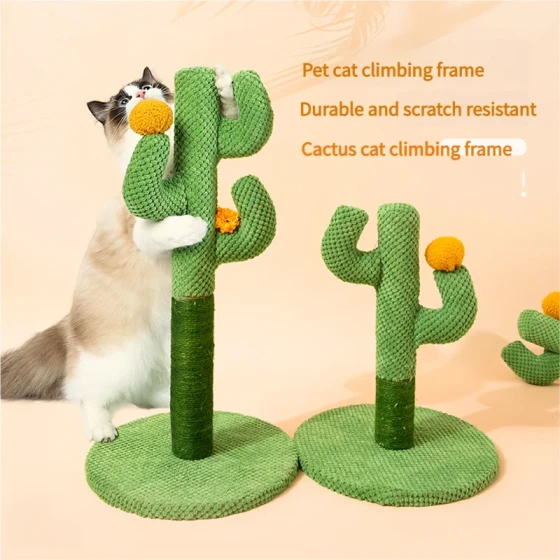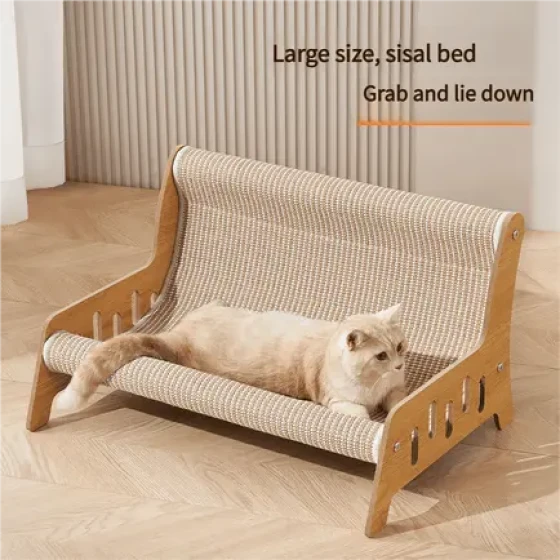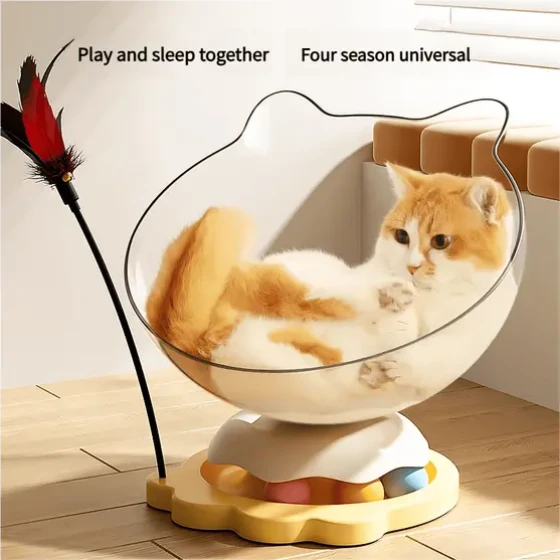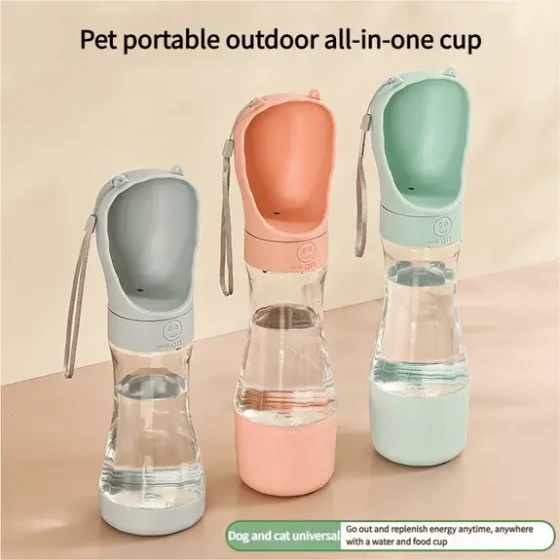What Does a Tabby Cat Entering the House Foretell_Wealth or Blessing
Tabby cat, one of the "leaders" among our Chinese native cats, with a body striped like a tiger, carries a wild yet down-to-earth temperament. When such a “master” actively comes to your door, it’s easy to wonder: what kind of omen is this? Is heaven hinting I should buy a lottery ticket (wealth), or is it signaling that life will add some different colors (blessing)?
This question is quite interesting. It exactly stands at the crossroads of traditional folklore, animal behavior, and modern psychological needs. Let’s peel it layer by layer.
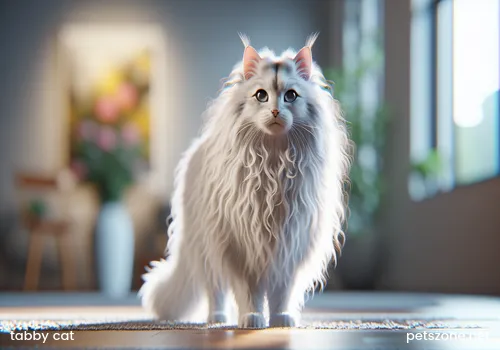
Folk Legends: Is it "Cat Brings Poverty" or "Cat Opens a Pawnshop"?
In old sayings, the talk about cats coming to the door is actually a bit "schizophrenic."
One saying that many might have heard: "Pig comes, poverty; dog comes, wealth; cat comes, opens a pawnshop." This sounds auspicious. A cat that comes can open a pawnshop, meaning quite prosperous—definitely the “lucky cat” itself. Look at Japan’s Maneki-neko, though often depicted as calico or pure white, its cultural implication of cats bringing wealth has deeply rooted in East Asian hearts; the connection between cats and wealth is not unfounded.
But there’s also another widespread saying: "Cat comes, poverty; dog comes, wealth." That’s awkward, completely reversed. How to explain?
Here, we might need to distinguish "what kind of cat" and "how it comes."
- Active wild cat entering versus lazy domestic cat: Some interpretations consider "cat brings poverty" to refer to the lazy cat that only eats without working (for example, catching mice), or simply a house-trained cat from others coming to freeload. Such a cat only consumes without producing, naturally not seen as an auspicious sign. The "pawnshop-opening" cat often means a proactive, clever (able to catch mice and guard the granary), insightful "wild cat," especially robust survival types like the tabby cat. Its choice to come to your home shows your home environment is good, at least a "potential stock" in its eyes, worthy of "investment." This "investment vision" is inferred as bringing wealth luck.
- Cat’s independence: Cats aren’t as dependent on owners as dogs; they are independent and autonomous. A wild cat choosing to enter a human household is after careful observation and judgment. It thinks this place is safe, has food potential, and is suitable for shelter. Being “chosen” in this way itself makes people feel honored, implying the home is a "blessed land," at least from the cat’s perspective.
So you see, folklore needs to be pondered over. The same cat coming in, different motives and conditions can cause vastly different interpretations. It can’t be equated simply and bluntly.
Tabby Cat: Not Just a "Native Cat," But a "Survival Expert"
Let’s focus on the "tabby cat" itself.
The tabby cat (known in some places as Dragon Li, although CFA’s certification process was somewhat bumpy, its status as a native breed is recognized) is not a greenhouse flower. They are breeds filtered by thousands of years of natural selection and early semi-domestication by human society.
- Strong survival abilities: Adaptability, hunting skills, and environmental alertness are top-notch. Surviving in complex urban or rural settings requires real skill.
- Relatively independent: They retain a lot of their wild nature, unlike many purebred pets that rely completely on humans. They will approach humans but also have their own minds.
- Historical role: In ancient times, cats (especially skilled hunting tabby cats) had important duties guarding granaries against mice. From this perspective, they were "guardians" of family assets, indirectly bringing "wealth" and "peace."
When such a "battle-hardened" survival expert gives up the free wild life to choose to knock on your door, this itself has considerable "value." It’s not casually lying down somewhere but after some "due diligence," deciding your home is a worthy "safe harbor."
This kind of "recognition" is more concrete and reassuring than abstract notions of "wealth" or "blessing."
Scientific Perspective: Why Did It Choose Your Home?
Setting aside all mysticism and symbolism, from an ethological point of view, a cat (of any breed) actively entering a stranger’s human residence is usually due to very practical needs:
- Looking for food and water sources: This is the most basic survival need. Maybe there is a stable food source near your house (for example, you or neighbors occasionally feed), or it smells food from your kitchen.
- Seeking safety and shelter: Harsh weather (cold, heat, rain), avoidance of predators or other stray animals, or even pregnancy and birthing needs make cats look for a safe, warm, dry hiding spot. Your porch, windowsill, may just provide such a "safe haven."
- Curiosity and exploration desire: Cats are curious, especially young cats. An open door or a slightly ajar window can trigger their exploratory drive.
- Perceived friendliness: If you have pets or you exude a gentle, non-threatening vibe, it may attract a sensitive cat to approach.
So, from this perspective, a tabby cat entering predicts that:
- Your home environment may have attracting factors (food scent, safety, comfortable temperature).
- The cat is facing some survival pressure or need.
- It holds certain trust or at least not strong fear toward humans.
Is that unrelated to "wealth" or "blessing"? Wait a moment.
When Mysticism Meets Reality: What It Foretells Depends on What You Do
Now, let’s look at folklore, cat traits, and science together.
A tabby cat entering your home can be understood as:
- A rare coincidence of fate: Among the vast world, it chose you.
- An “approval” of your home environment: At least in the cat’s eyes, it’s quite good.
- An “event” requiring your choice: Will you drive it away or help it?
This is the core of the “omen.” It doesn’t predict a passive result (like a windfall), but an active choice opportunity.
- If you choose to accept and help:
- Actual “blessing”: You may gain a furry companion. Modern studies have long proven that keeping pets benefits physical and mental health, relieving stress and loneliness. Isn’t this emotional value a kind of “blessing”? Especially for tabby cats, which are interactive without being overly clingy, they bring much joy to life.
- Potential “wealth”: Feeling better, being in a good state, behaving positively, and improving interpersonal interactions may indirectly bring “wealth luck.” It has a flavor of “sincerity brings results,” but not entirely groundless. Also, caring for a small life instills responsibility and routine, often cultivating one’s character.
- Character reflection: Being kind to animals itself reflects kindness and ability. The self and social recognition gained is also an intangible wealth.
- If you choose to ignore or drive it away:
- Life goes on as usual, nothing happens. Of course, a special bond might be missed.
So, when a tabby cat comes to your doorstep, rather than obsessing over the “vague” luck it brings, see it as a signal: Hey, there’s a little life here that thinks your place is good. Now, the ball is in your court.
Is it a “lucky cat”? Unknown. But if you treat it well, it might become your “stress relief cat,” “companion cat,” and “source of happiness cat.” This genuine emotional payoff, to me, is far more precious than uncertain “wealth luck.”
After all, a tabby cat that accidentally walks in doesn’t carry any supernatural “luck code.” It’s just following biological instincts, seeking a better chance to survive.
What it truly “predicts” may be whether you have enough space and willingness in your heart to accept an unexpected responsibility and bond. This acceptance itself might be the best “blessing.”
As for that tabby cat, it probably hasn’t thought so much, maybe just thought: “Wow, this place smells nice and looks safe. Let me check it out?”
Just that simple, and that’s quite good.
